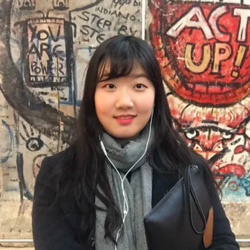
Please join the International Relations Speaker Series as they host Bo Won Kim, Ph.D. candidate at Northwestern University.
Why do international agreements within the same issue area vary drastically in their enforcement? Consider the case of international institutions handling firearms trafficking. Overlapping delegates negotiated these agreements between 1997 and 2001 where states showed consistent preferences. However, their decisions to include enforcement mechanisms differed significantly in different venues of negotiation. For example, the OAS Convention that regulates illicit firearms trafficking includes embedded enforcement mechanisms. However, despite the strong advocacy from the US and European countries for their inclusion, the United Nations Firearms Protocol failed to include any monitoring mechanisms. To account for this puzzling divergence in treaty design, I draw from 6 months of fieldwork in UN Vienna, implement cross-case comparisons, and process trace the OAS convention and the Firearms Protocol. I find that when delegates self-bind to negotiate based on consensus, even though procedural rules allow the right to vote, weaker states can politicize a necessary institutional element and remove it from the negotiation text entirely. The implications of this research show that seeking international legitimacy through consensus could paradoxically diminish the strength of an international treaty, posing a dilemma between consensus and efficacy, but also show that specific organizational cultures matter in negotiations of treaties.
Bo Won Kim is a PhD Candidate at Northwestern University, Department of Political Science. She researchs the politics of international cooperation in areas of global illicit economies, international investment and trade, and international criminal law. During her PhD training at Northwestern University, she was fully funded along with stipend support by the University of Chicago Law School to gain further expertise in law, where she received a Master's degree in Legal Studies. Her dissertation project explores the different institutional paths taken to regulate the illicit economies. She focuses on the delegates and their agency, exploring how self-created norms within negotiations impact the outcome of institutional design. The cases analyzed in her dissertation include international institutions which regulate firearms trafficking and drug trafficking. She draws from archival materials, semi-structured interviews with delegates who participated in creating these institutions, and did an embedded fieldwork as an intern to the United Nations Office for Drugs and Crime for six months.
Audience
- Faculty/Staff
- Graduate Students
Interest
- Academic (general)